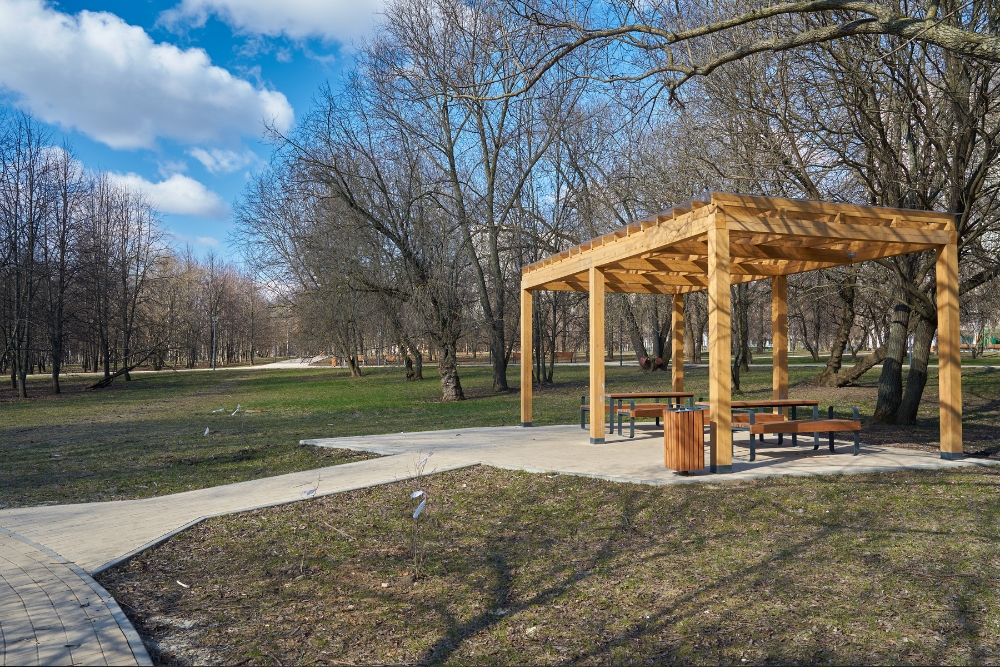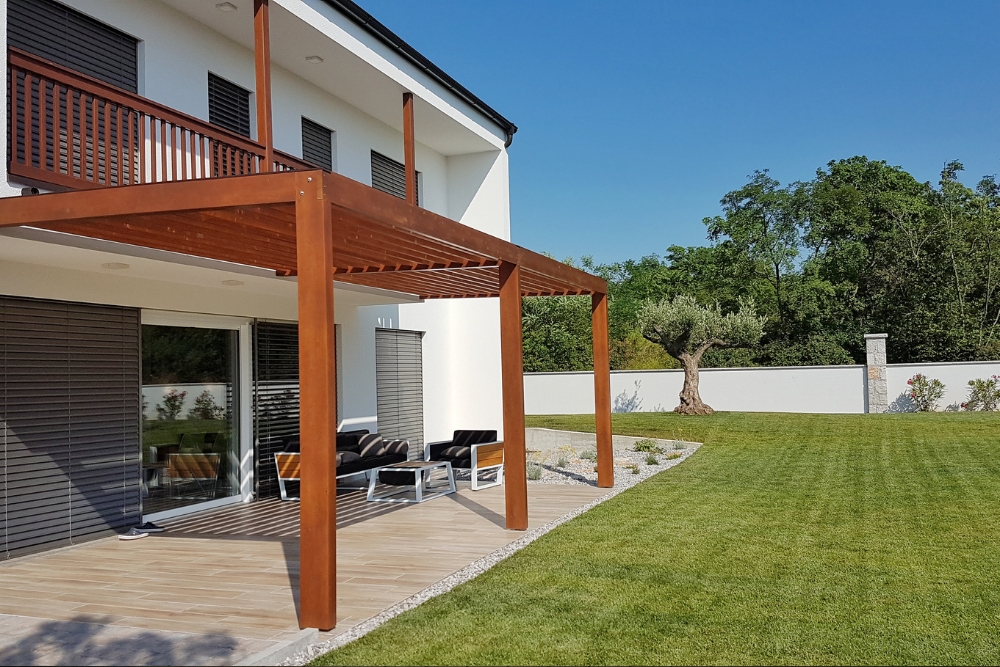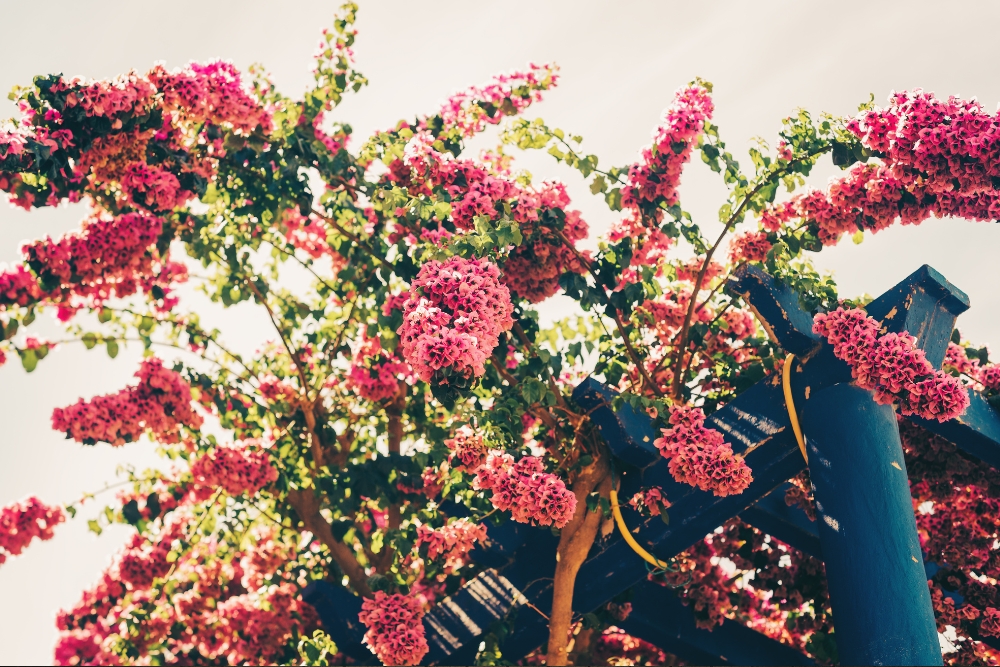Crafting the quintessential pergola for your coastal abode can be a fair dinkum challenge, what with the salt air being as persistent as a blow. We understand just how tricky it is to scout out materials sturdy enough to take on that relentless sea breeze without chucking in the towel.
In this yarn, we’re going to yarn you through selecting timbers and fittings for your wooden pergolas that won’t just survive – they’ll thrive and truly accentuate your beachside haven.
Key Takeaways
- Choose pressure-treated pine or rough-sawn western red cedar for wooden pergolas, as they are durable and resist decay in salt air environments.
- Consider the maintenance wood requires; it needs regular sealing and inspections to combat moisture and pests common in coastal areas.
- Look at aluminum as a low – maintenance option that can withstand harsh coastal conditions; it’s resistant to corrosion from salt air.
- Be mindful of the budget; while wood may be more affordable upfront, aluminium offers savings over time with less upkeep required.
- Select materials that match your desired aesthetic, balancing between natural timber looks or contemporary aluminium designs for your pergola.
Common Materials Used for Pergolas
When it comes to choosing materials for pergolas, there are a few common options to consider. Wood, vinyl, and aluminium are the most popular choices for coastal homes due to their durability and aesthetics.
Each material has its own set of pros and cons that you need to weigh before making a decision.
Wood (pressure-treated pine, rough-sawn western red cedar)
Our coastal homes face unique challenges, particularly from the salty air that can wear down less durable materials. That’s why we often turn to wood like pressure-treated pine and rough-sawn western red cedar for our outdoor pergolas.
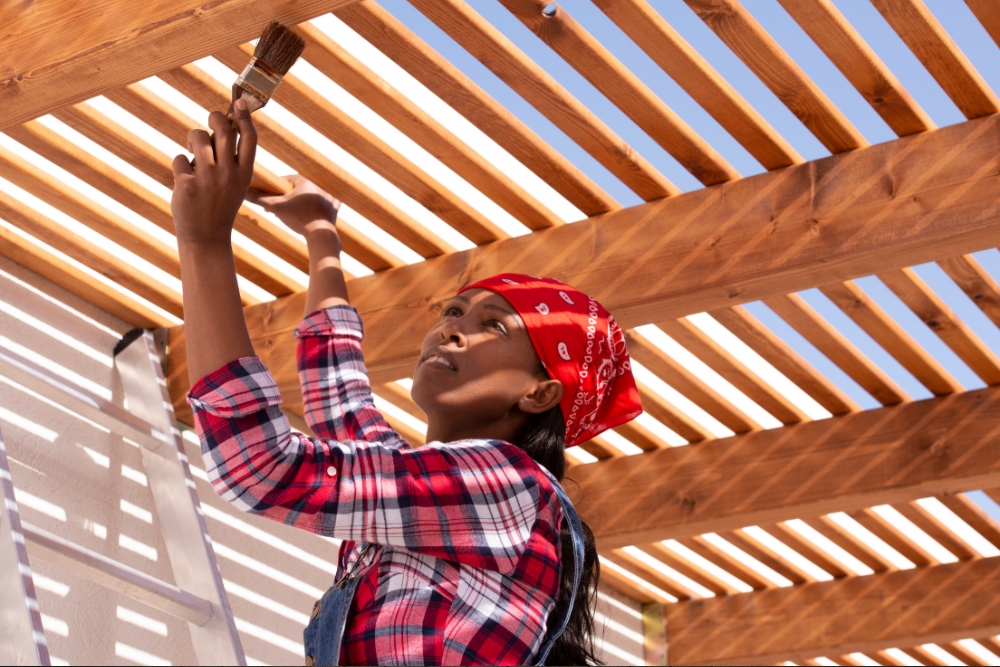
These timbers stand up well against the elements, offering a strong, lasting solution for our oceanfront living spaces. Pressure-treated pine is especially popular, given its affordability and effectiveness at resisting decay.
Opting for rough-sawn western red cedar not only provides resistance to moisture but also adds a touch of natural beauty with its rich texture. It fits perfectly into coastal landscaping themes and complements other outdoor furniture pieces.
These wooden options have proven their worth by enduring salt air while maintaining their structural integrity over time, making them ideal selections for our seaside homes.
Vinyl
Switching gears to another material option, let’s consider vinyl for your coastal pergola. While it is low maintenance and budget-friendly, it’s essential to keep in mind that vinyl can be prone to warping in extreme temperatures due to salt air exposure.
This means that if you opt for a vinyl pergola, regular checks and upkeep may be necessary to ensure its longevity in a coastal environment. It’s worth noting that while it may require more attention compared to other materials like aluminium, the initial cost savings might still make it an appealing choice for some homeowners looking for a balance between affordability and durability.
Aluminum
Aluminum is a durable and low-maintenance material option for coastal pergolas. Its resistance to corrosion from salt air makes it an ideal choice for outdoor structures in seaside locations.
Apollo Pergolas, made of architectural grade aluminium, offers a stylish and long-lasting solution for homeowners looking to build a weather-resistant pergola that can withstand the harsh coastal elements.
The ultimate aluminium pergola option, Apollo Opening Roof, provides homeowners with a high-quality structure that requires minimal upkeep. Choosing aluminium as the primary material for your coastal pergola ensures longevity and minimal maintenance, making it a practical and reliable choice for outdoor living spaces by the ocean.
Pros and Cons of Each Material
– Wood: While wood pergolas are traditional and versatile, they require regular maintenance to withstand salt air.
– Vinyl: Low maintenance and budget-friendly, vinyl pergolas are prone to warping in extreme temperatures.
– Aluminum: Highly durable with minimal upkeep, aluminium is the ideal material for coastal areas due to its resistance to salt air.
Wood: traditional, versatile, requires maintenance
When considering wooden pergolas for coastal homes, it’s essential to understand that wood is a traditional and versatile material option. It provides a classic aesthetic while offering the flexibility to be stained or painted to suit your preferred style.
However, it’s important to note that wooden pergolas do require regular maintenance, including staining or painting every few years and inspection for signs of rot or insect damage due to exposure in coastal areas.
Choosing the right type of wood, such as pressure-treated pine or rough-sawn western red cedar, can help mitigate some maintenance needs by enhancing resistance to moisture and pests.
These factors are crucial considerations when selecting materials that can withstand salt air and ensure long-term durability in coastal environments. Considering this information, let’s explore vinyl as an alternative material for building pergolas in coastal areas.
Vinyl: low maintenance, budget-friendly, prone to warping in extreme temperatures
Vinyl is a popular choice for pergolas due to its low maintenance and budget-friendly nature. It requires minimal upkeep, making it an attractive option for homeowners seeking an easy-to-manage outdoor structure.
However, it’s important to note that vinyl is prone to warping in extreme temperatures. This can be a concern in coastal areas where weather conditions can fluctuate dramatically.
When considering the material for your pergola, keep in mind the potential impact of extreme temperatures on vinyl structures. This will help you make an informed decision based on the specific weather conditions in your coastal area.
Aluminium: durable, minimal upkeep, ideal for coastal areas
When comparing different materials for coastal pergolas, aluminium stands out as a durable and low-maintenance option. Its resistance to corrosion makes it ideal for areas with salt air exposure.
This metal material is known for its longevity and ability to withstand harsh coastal conditions, making it a reliable choice for homeowners looking for minimal upkeep and long-lasting outdoor structures.
Coastal homeowners seeking a pergola that can endure the challenges of seaside living should consider aluminium as their top choice.
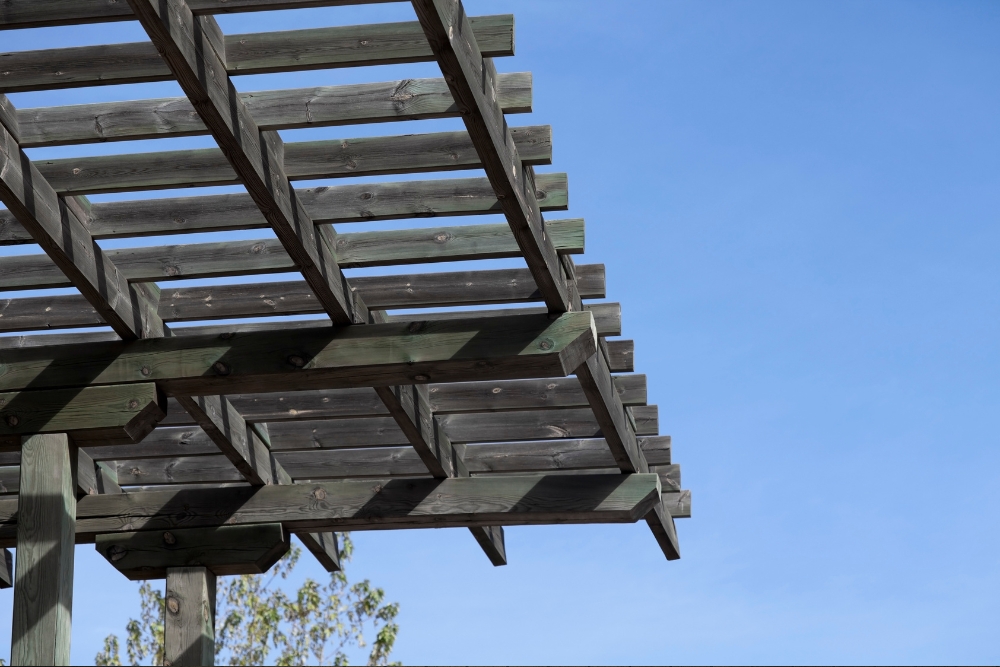
Other Options for Pergolas
Explore the options of Apollo Pergolas and Apollo Opening Roof, which are made from architectural grade aluminium and offer ultimate durability for coastal homes. Read on to discover the best material for your pergola needs!
Apollo Pergolas (architectural grade aluminum)
Choosing the right material for a coastal pergola is crucial, especially when considering the corrosive effects of salt air. Apollo Pergolas, made from architectural grade aluminium, provides a durable and low-maintenance option that can withstand the harsh coastal environment.
With its resistance to corrosion and minimal upkeep requirements, Apollo Pergolas offer an ideal solution for homeowners looking for long-term durability in their outdoor structures.
Architectural grade aluminium ensures that Apollo Pergolas are not only strong but also lightweight, making them a practical choice for coastal areas where weather-resistant materials are essential.
Apollo Opening Roof (ultimate aluminium pergola option)
When considering the best pergola option for coastal homes, the Apollo Opening Roof stands out as the ultimate aluminium choice. This high-quality material is not only durable and weather-resistant but also specifically designed to withstand salt air exposure.
Its architectural-grade aluminium construction ensures minimal upkeep while offering a stylish and functional outdoor living space for coastal homeowners. With the Apollo Opening Roof, you can enjoy your coastal oasis without worrying about corrosion or constant maintenance.
Constructed from premium-grade materials, the Apollo Opening Roof offers unparalleled durability in harsh coastal environments. Its resistance to salt, sand, and other coastal elements makes it an ideal choice for homeowners seeking a long-lasting and low-maintenance pergola solution.
Factors to Consider When Choosing Pergola Material for Coastal Homes
Consider the exposure to salt air, your budget, your desired aesthetic, and the level of maintenance required when choosing materials for your coastal pergola. Read on to make an informed decision for your outdoor space!
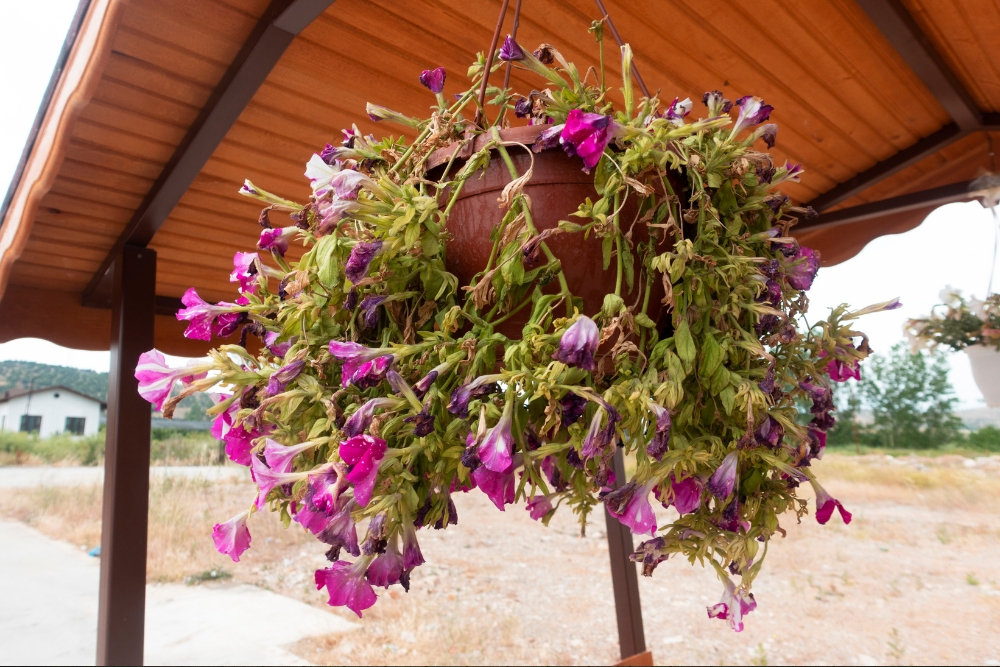
Salt air exposure
Exposure to salt air can cause corrosion and deterioration of outdoor materials, making it crucial to choose pergola materials that can withstand these harsh coastal conditions. When selecting a material for your coastal pergola, consider options such as pressure-treated pine or rough-sawn western red cedar, which boasts natural resistance to salt air and moisture.
These timber options provide durability in the face of salty sea breezes while also adding a touch of natural beauty to your outdoor space. Additionally, aluminium is another excellent choice for withstanding salt air exposure due to its non-corrosive properties, making it an ideal option for coastal areas where maintaining structural integrity in the face of challenging environmental elements is essential.
Incorporate weather-resistant wood or aluminium into your decision-making process when choosing materials for your coastal pergola. This thoughtful consideration will ensure that you create an enduring outdoor structure that harmoniously complements your oceanfront home’s aesthetic while standing up against the corrosive effects of salt air over time.
Budget
After considering the impact of salt air exposure on the materials, it’s crucial to evaluate your budget when selecting the right pergola material for your coastal home. Pressure-treated pine and rough-sawn western red cedar are popular wood options that are not only durable but also cost-effective, making them ideal choices for homeowners looking to balance durability with affordability.
Additionally, aluminium pergolas offer a higher upfront cost compared to wood ones, but their low maintenance requirements can result in long-term savings. It’s important to consider the initial investment along with ongoing maintenance costs when determining which material best fits within your budget.
Desired aesthetic
Choosing the right aesthetic for your coastal pergola is essential in creating a seamless outdoor space that complements your home’s surroundings. The natural warmth and character of timber can add a rustic charm to your coastal setting, blending harmoniously with the beach environment.
On the other hand, aluminium exudes a modern and sleek appearance, offering a more contemporary look that can complement minimalist or industrial-style homes. It’s important to consider how your desired aesthetic aligns with the overall style of your coastal home to create an inviting and cohesive outdoor living space.
When deciding on the aesthetic for your pergola, incorporating weather-resistant materials is crucial to maintain its visual appeal over time. Timber adds timeless beauty but requires regular maintenance to preserve its allure against salt air exposure.
Levels of maintenance
Wooden pergolas require regular maintenance to ensure they withstand salt air in coastal areas. This includes inspecting for rot, insect damage, and warping, and applying a sealant every couple of years to protect the wood from moisture.
Pressure-treated pine and rough-sawn western red cedar are commonly used for their durability and resistance to decay. However, regular upkeep is essential to maintain their longevity against the corrosive effects of salt air.
Vinyl pergolas offer low maintenance but may warp in extreme temperatures. While they are resistant to rust and corrosion from salt air, periodic cleaning is necessary to prevent the buildup of dirt, sand, or salt residue on the surface.
Enhance Your Space with Aluminum Pergola Elegance!
In conclusion, choosing the right materials for a coastal pergola is crucial to ensure durability and resistance against salt air. Consider options such as pressure-treated pine or rough-sawn western red cedar for a traditional yet sturdy choice.
Keep in mind the maintenance required for wood, the low upkeep of vinyl, or the durability of aluminium when making your decision. Factors like budget and desired aesthetics play a key role in selecting the best material for your coastal home’s outdoor structure.
Transform your coastal home into a seaside oasis with our durable wooden pergolas designed to withstand the challenges of salt air. Our expertly crafted pergolas are built using premium materials that resist corrosion and deterioration, ensuring longevity in coastal environments. Elevate your outdoor space with the timeless charm of wooden pergolas that not only enhance your home’s aesthetics but also provide a sheltered retreat against the coastal elements. Explore our range of coastal-friendly wooden pergolas today and bring enduring beauty to your seaside escape! Contact Us Now!

